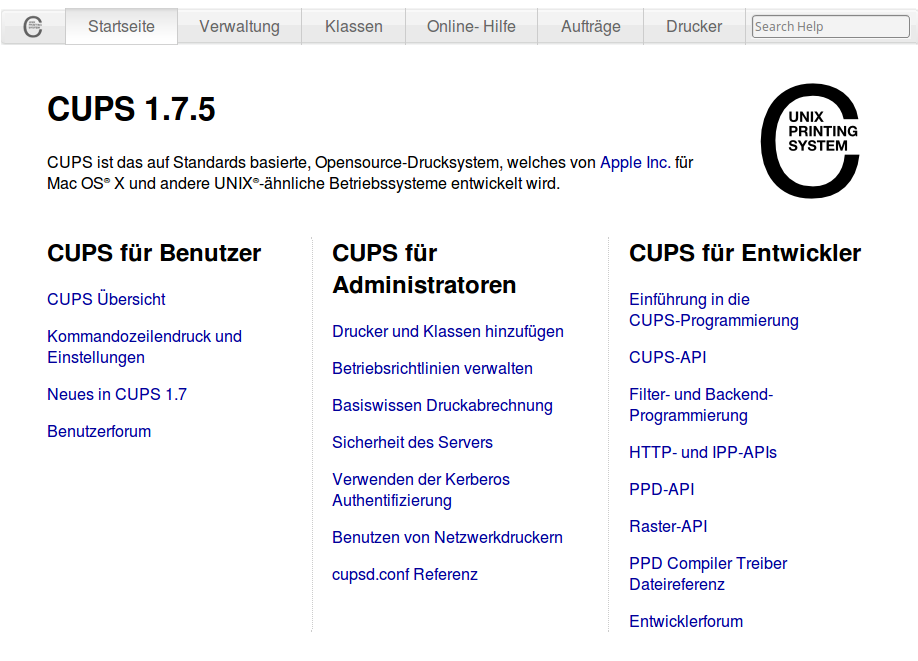Liste von Linuxbefehlen
-
Kleine Liste von Befehlen, die ich immer mal wieder brauche. Bis ich die im Kopf behalte, muss ich sie mir aufschreiben

ls
Liste nur der Directories ausgeben
[frank@eos etc]$ ls -d */ alsa/ daxctl.conf.d/ fwupd/ kernel/ modules-load.d/ pkcs11/ skel/ vpnc/ audit/ dconf/ grub.d/ keyutils/ ndctl/ pki/ ssh/ wpa_supplicant/ avahi/ debuginfod/ gss/ ld.so.conf.d/ ndctl.conf.d/ polkit-1/ ssl/ X11/ binfmt.d/ default/ gssproxy/ libblockdev/ netctl/ ppp/ sudoers.d/ xdg/ bluetooth/ depmod.d/ gtk-2.0/ libinput/ NetworkManager/ profile.d/ sysctl.d/ xinetd.d/ ca-certificates/ dracut.conf.d/ gtk-3.0/ libnl/ nginx/ pulse/ systemd/ xl2tpd/ cifs-utils/ eos-apps-info/ hp/ libpaper.d/ openldap/ rc_keymaps/ tmpfiles.d/ conf.d/ exports.d/ ifplugd/ libsmbios/ openvpn/ request-key.d/ tpm2-tss/ credstore/ firewall/ ImageMagick-7/ logrotate.d/ pacman.d/ sane.d/ udev/ credstore.encrypted/ firewalld/ iproute2/ lvm/ pam.d/ sddm.conf.d/ udisks2/ cups/ fonts/ iptables/ ModemManager/ pinentry/ security/ UPower/ cupshelpers/ foomatic/ java17-openjdk/ modprobe.d/ pipewire/ sensors.d/ usb_modeswitch.d/grep
Wenn man mit grep die Datei syslog durchsucht, geht das einwandfrei. Doch mit der Datei syslog.1 meint grep ein binary File vor sich zu haben und weigert sich.
rock64@rockpro64v_2_1:~$ sudo grep "Restic" /var/log/syslog.1 Binary file /var/log/syslog.1 matchesMit der Option -a behandelt grep die Datei als Textdatei.
rock64@rockpro64v_2_1:~$ sudo grep -a "Restic" /var/log/syslog.1 Sep 18 04:33:05 rockpro64v_2_1 root: Restic-Backup Script erfolgreich! 18.09.2018_04:30 Sep 18 04:35:06 rockpro64v_2_1 root: Restic-Backup erfolgreich überprüft! 18.09.2018_04:30Was ich auch immer wieder brauche, wenn ich dmesg nach irgendwas durchsuchen muss.
dmesg | grep -i memory dmesg | grep -E "memory|dma|usb|tty"dpkg
Wenn man Kamils Mainline runtergeladen hat und die .deb Dateien installieren möchte.
sudo dpkg -i *.debfind
ACHTUNG! Nicht ungefährlich der Befehl!
# Alle Dateien löschen, die älter als 5 Tage sind. find /daten -name "*.rdb*" -mtime 5 -exec rm {} \;Hier noch ein aktuelles Beispiel
## Nur die Datenbanken der letzten 30 Tage behalten find /mnt/nas/Sicherungen_Cloud/mysql/ -name "joomla*.sql" -mtime +30 -exec rm {} \;du
Verzeichnisgröße ermitteln
du -hs /folderund Unterverzeichnisse
du -shc /mnt/HC_Volume_XXXXXXXXX/nextcloud_data/*tail
Log live anzeigen
tail -f /var/log/...Die letzten 30 Zeilen
tail -n 30 /var/log/syslogpstree
apt install psmiscAusgabe von pstree
root@NFSServer:~# pstree systemd─┬─agetty ├─blkmapd ├─cron ├─dbus-daemon ├─qemu-ga ├─rpc.idmapd ├─rpc.mountd ├─rpcbind ├─rsyslogd───3*[{rsyslogd}] ├─sshd───sshd───sshd───bash───su───bash───pstree ├─systemd───(sd-pam) ├─systemd-journal ├─systemd-logind ├─systemd-timesyn───{systemd-timesyn} └─systemd-udevddig (dns-utils)
root@rockpro64:/etc/unbound# dig google.com ; <<>> DiG 9.11.5-P4-5.1-Debian <<>> google.com ;; global options: +cmd ;; Got answer: ;; ->>HEADER<<- opcode: QUERY, status: NOERROR, id: 59187 ;; flags: qr rd ra; QUERY: 1, ANSWER: 1, AUTHORITY: 0, ADDITIONAL: 1 ;; OPT PSEUDOSECTION: ; EDNS: version: 0, flags:; udp: 4096 ;; QUESTION SECTION: ;google.com. IN A ;; ANSWER SECTION: google.com. 300 IN A 172.217.16.142 ;; Query time: 26 msec ;; SERVER: ::1#53(::1) ;; WHEN: Sun Feb 23 10:12:20 UTC 2020 ;; MSG SIZE rcvd: 55openssl
openssl dhparam -out /etc/nginx/certs/dhparam.pem 2048und
openssl rand -hex 32nmap
root@debian:~# nmap 192.168.3.14 Starting Nmap 7.70 ( https://nmap.org ) at 2020-04-11 13:03 CEST Nmap scan report for 192.168.3.14 Host is up (0.00096s latency). Not shown: 999 closed ports PORT STATE SERVICE 22/tcp open ssh MAC Address: 62:03:B0:D6:DC:B3 (Unknown) Nmap done: 1 IP address (1 host up) scanned in 1.63 secondsmdadm
cat /proc/mdstat&
watch -n1 cat /proc/mdstat&
mdadm --assemble --scannmap
root@frank-MS-7C37:~# nmap 192.168.3.11 Starting Nmap 7.80 ( https://nmap.org ) at 2020-05-10 17:55 CEST Nmap scan report for 192.168.3.11 Host is up (0.00082s latency). Not shown: 998 filtered ports PORT STATE SERVICE 22/tcp open ssh 8000/tcp open http-alt MAC Address: 62:03:B0:D6:DC:B3 (Unknown) Nmap done: 1 IP address (1 host up) scanned in 7.05 secondstelnet
root@frank-MS-7C37:~# telnet 192.168.3.11 8000 Trying 192.168.3.11... Connected to 192.168.3.11. Escape character is '^]'. ^C Connection closed by foreign host.Zum Beenden von telnet
CTRL + ]und dann "quit" eingeben
update-initramfs -u
update-initramfs -uEinen symbolischen Link anlegen
ln -s ~/Downloads ~/Desktop/DownloadDebian Version
cat /etc/debian_versionPartitionen anzeigen
sudo lsblk -f.gz entpacken
gunzip openwrt-rockchip-armv8-friendlyarm_nanopi-r4s-ext4-sysupgrade.img.gznetstat
netstat -tulpn netstat -tulpn | grep 80ip
ip in Farbe!
ip -c a
Konsole in Englisch
[frank-ms7c92 ~]# LC_ALL=C freeAusgabe
[frank-ms7c92 ~]# free gesamt benutzt frei gemns. Puffer/Cache verfügbar Speicher: 61609880 13752348 36892556 837540 10964976 46327716 Swap: 67767424 0 67767424 [frank-ms7c92 ~]# LC_ALL=C free total used free shared buff/cache available Mem: 61609880 13781124 36863292 837540 10965464 46298944 Swap: 67767424 0 67767424 -
In meinem neuen PC ist eine 2,5G Karte drin, das muss man ja am WE mal testen. Und so bekommt man ein paar Infos zu den Interfaces.
root@frank-MS-7C37:~# ethtool enp41s0 Settings for enp41s0: Supported ports: [ TP MII ] Supported link modes: 10baseT/Half 10baseT/Full 100baseT/Half 100baseT/Full 1000baseT/Full 2500baseT/Full Supported pause frame use: Symmetric Receive-only Supports auto-negotiation: Yes Supported FEC modes: Not reported Advertised link modes: 10baseT/Half 10baseT/Full 100baseT/Half 100baseT/Full 1000baseT/Full 2500baseT/Full Advertised pause frame use: Symmetric Receive-only Advertised auto-negotiation: Yes Advertised FEC modes: Not reported Speed: Unknown! Duplex: Unknown! (255) Port: Twisted Pair PHYAD: 0 Transceiver: internal Auto-negotiation: on MDI-X: Unknown Supports Wake-on: pumbg Wake-on: d Link detected: no -
systemd
Anzeige der geladenen Dienste
root@host:/etc/systemd/system# systemctl --type=service UNIT LOAD ACTIVE SUB DESCRIPTION atd.service loaded active running Deferred execution scheduler blk-availability.service loaded active exited Availability of block devices cloud-config.service loaded active exited Apply the settings specified in cloud-config cloud-final.service loaded active exited Execute cloud user/final scripts cloud-init-local.service loaded active exited Initial cloud-init job (pre-networking) cloud-init.service loaded active exited Initial cloud-init job (metadata service crawler) console-setup.service loaded active exited Set console font and keymap cron.service loaded active running Regular background program processing daemon crowdsec-firewall-bouncer.service loaded active running The firewall bouncer for CrowdSec crowdsec.service loaded active running Crowdsec agent dbus.service loaded active running D-Bus System Message Bus getty@tty1.service loaded active running Getty on tty1 ifupdown-pre.service loaded active exited Helper to synchronize boot up for ifupdown keyboard-setup.service loaded active exited Set the console keyboard layout kmod-static-nodes.service loaded active exited Create List of Static Device Nodes lvm2-monitor.service loaded active exited Monitoring of LVM2 mirrors, snapshots etc. using dmeventd or progress polling mariadb.service loaded active running MariaDB 10.11.3 database server networking.service loaded active exited Raise network interfaces nginx.service loaded active running A high performance web server and a reverse proxy server qemu-guest-agent.service loaded active running QEMU Guest Agent resolvconf.service loaded active exited Nameserver information manager semaphore.service loaded active running Ansible Semaphore serial-getty@ttyS0.service loaded active running Serial Getty on ttyS0 ssh.service loaded active running OpenBSD Secure Shell server systemd-binfmt.service loaded active exited Set Up Additional Binary Formats systemd-fsck@dev-disk-by\x2duuid-1E22\x2dDC00.service loaded active exited File System Check on /dev/disk/by-uuid/1E22-DC00 systemd-journal-flush.service loaded active exited Flush Journal to Persistent Storage systemd-journald.service loaded active running Journal Service systemd-logind.service loaded active running User Login Management systemd-modules-load.service loaded active exited Load Kernel Modules systemd-random-seed.service loaded active exited Load/Save Random Seed systemd-remount-fs.service loaded active exited Remount Root and Kernel File Systems systemd-sysctl.service loaded active exited Apply Kernel Variables systemd-sysusers.service loaded active exited Create System Users systemd-timesyncd.service loaded active running Network Time Synchronization systemd-tmpfiles-setup-dev.service loaded active exited Create Static Device Nodes in /dev systemd-tmpfiles-setup.service loaded active exited Create Volatile Files and Directories systemd-udev-trigger.service loaded active exited Coldplug All udev Devices systemd-udevd.service loaded active running Rule-based Manager for Device Events and Files systemd-update-utmp.service loaded active exited Record System Boot/Shutdown in UTMP systemd-user-sessions.service loaded active exited Permit User Sessions ufw.service loaded active exited Uncomplicated firewall user-runtime-dir@0.service loaded active exited User Runtime Directory /run/user/0 user@0.service loaded active running User Manager for UID 0 LOAD = Reflects whether the unit definition was properly loaded. ACTIVE = The high-level unit activation state, i.e. generalization of SUB. SUB = The low-level unit activation state, values depend on unit type. 44 loaded units listed. Pass --all to see loaded but inactive units, too. To show all installed unit files use 'systemctl list-unit-files'. -
Anzeige des Speicherplatzes
als Ersatz für df -h
~ duf ✔ ╭──────────────────────────────────────────────────────────────────────────────────────────────────────────────────────╮ │ 8 local devices │ ├─────────────────┬────────┬────────┬────────┬───────────────────────────────┬───────┬─────────────────────────────────┤ │ MOUNTED ON │ SIZE │ USED │ AVAIL │ USE% │ TYPE │ FILESYSTEM │ ├─────────────────┼────────┼────────┼────────┼───────────────────────────────┼───────┼─────────────────────────────────┤ │ / │ 435.4G │ 154.6G │ 274.6G │ [#######.............] 35.5% │ btrfs │ /dev/luks-5336cabc-29f1-4af2-8a │ │ │ │ │ │ │ │ 31/dd411a9a1599 │ │ /boot/efi │ 299.4M │ 728.0K │ 298.7M │ [....................] 0.2% │ vfat │ /dev/nvme0n1p1 │ │ /home │ 435.4G │ 154.6G │ 274.6G │ [#######.............] 35.5% │ btrfs │ /dev/luks-5336cabc-29f1-4af2-8a │ │ │ │ │ │ │ │ 31/dd411a9a1599 │ │ /mnt/1TB │ 916.7G │ 821.8G │ 48.3G │ [#################...] 89.7% │ ext4 │ /dev/sda1 │ │ /mnt/Backup │ 457.4G │ 125.3G │ 308.8G │ [#####...............] 27.4% │ ext4 │ /dev/sdc1 │ │ /mnt/Backup_PVE │ 3.6T │ 718.3G │ 2.7T │ [###.................] 19.6% │ ext4 │ /dev/sdb1 │ │ /var/cache │ 435.4G │ 154.6G │ 274.6G │ [#######.............] 35.5% │ btrfs │ /dev/luks-5336cabc-29f1-4af2-8a │ │ │ │ │ │ │ │ 31/dd411a9a1599 │ │ /var/log │ 435.4G │ 154.6G │ 274.6G │ [#######.............] 35.5% │ btrfs │ /dev/luks-5336cabc-29f1-4af2-8a │ │ │ │ │ │ │ │ 31/dd411a9a1599 │ ╰─────────────────┴────────┴────────┴────────┴───────────────────────────────┴───────┴─────────────────────────────────╯ ╭──────────────────────────────────────────────────────────────────────────────────────────────────╮ │ 1 network device │ ├────────────┬────────┬────────┬────────┬───────────────────────────────┬──────┬───────────────────┤ │ MOUNTED ON │ SIZE │ USED │ AVAIL │ USE% │ TYPE │ FILESYSTEM │ ├────────────┼────────┼────────┼────────┼───────────────────────────────┼──────┼───────────────────┤ │ /mnt/NAS │ 786.4G │ 327.0G │ 419.3G │ [########............] 41.6% │ nfs4 │ 192.168.3.19:/NAS │ ╰────────────┴────────┴────────┴────────┴───────────────────────────────┴──────┴───────────────────╯ ╭───────────────────────────────────────────────────────────────────────────────────────────────────────────────────╮ │ 9 special devices │ ├─────────────────────────────────┬────────┬────────┬───────┬───────────────────────────────┬──────────┬────────────┤ │ MOUNTED ON │ SIZE │ USED │ AVAIL │ USE% │ TYPE │ FILESYSTEM │ ├─────────────────────────────────┼────────┼────────┼───────┼───────────────────────────────┼──────────┼────────────┤ │ /dev │ 30.2G │ 0B │ 30.2G │ │ devtmpfs │ dev │ │ /dev/shm │ 30.3G │ 21.9M │ 30.3G │ [....................] 0.1% │ tmpfs │ tmpfs │ │ /run │ 30.3G │ 2.0M │ 30.3G │ [....................] 0.0% │ tmpfs │ run │ │ /run/credentials/systemd-crypts │ 1.0M │ 0B │ 1.0M │ │ tmpfs │ tmpfs │ │ etup@luks\x2d3a8e1aea\x2d0d01\x │ │ │ │ │ │ │ │ 2d4e45\x2d940f\x2d63af54c3d7f0. │ │ │ │ │ │ │ │ service │ │ │ │ │ │ │ │ /run/credentials/systemd-crypts │ 1.0M │ 0B │ 1.0M │ │ tmpfs │ tmpfs │ │ etup@luks\x2d5336cabc\x2d29f1\x │ │ │ │ │ │ │ │ 2d4af2\x2d8a31\x2ddd411a9a1599. │ │ │ │ │ │ │ │ service │ │ │ │ │ │ │ │ /run/credentials/systemd-journa │ 1.0M │ 0B │ 1.0M │ │ tmpfs │ tmpfs │ │ ld.service │ │ │ │ │ │ │ │ /run/user/1000 │ 6.1G │ 4.4M │ 6.1G │ [....................] 0.1% │ tmpfs │ tmpfs │ │ /sys/firmware/efi/efivars │ 128.0K │ 62.8K │ 60.2K │ [#########...........] 49.1% │ efivarfs │ efivarfs │ │ /tmp │ 30.3G │ 954.6M │ 29.3G │ [....................] 3.1% │ tmpfs │ tmpfs │ ╰─────────────────────────────────┴────────┴────────┴───────┴───────────────────────────────┴──────────┴────────────╯ -
Kurzer IPv6 Ping, ohne viel Tipparbeit
root@:~# ping 2600:: PING 2600::(2600::) 56 data bytes 64 bytes from 2600::: icmp_seq=1 ttl=55 time=14.9 ms 64 bytes from 2600::: icmp_seq=2 ttl=55 time=13.0 ms 64 bytes from 2600::: icmp_seq=3 ttl=55 time=15.9 ms
-
-
-
Debian Bookworm 12.9 released
Verschoben Linux -
-
-
-
-

